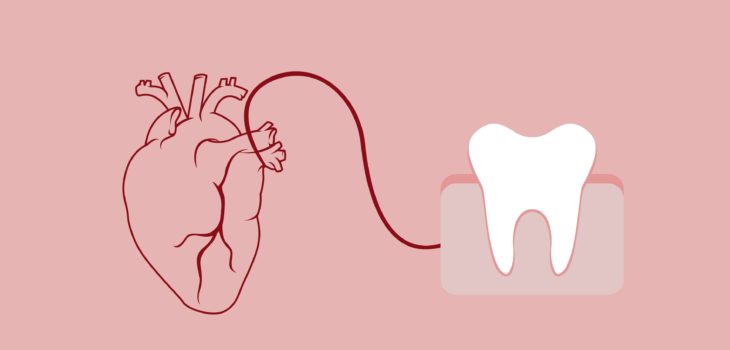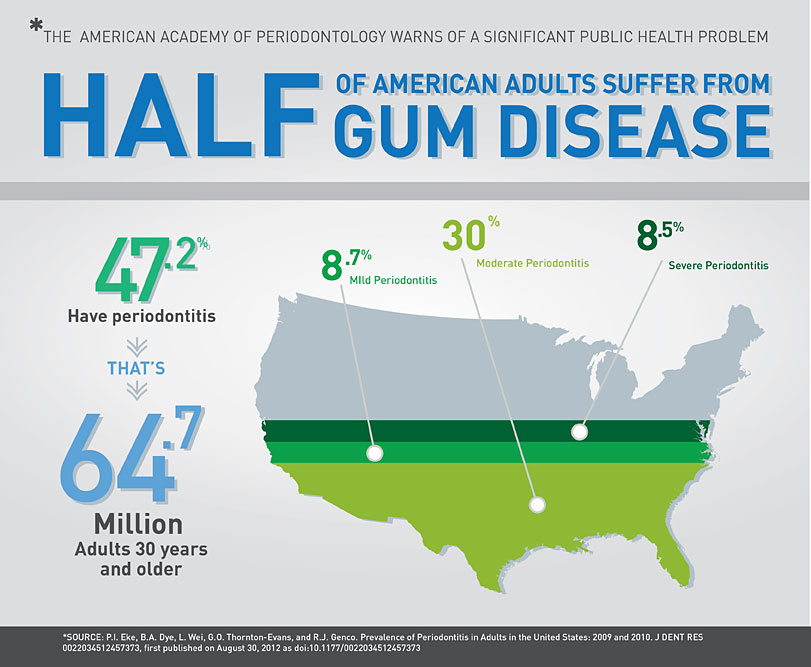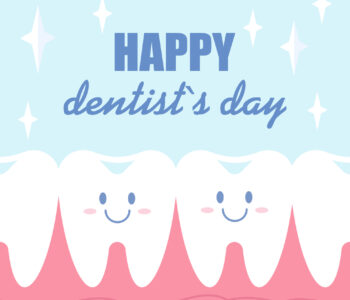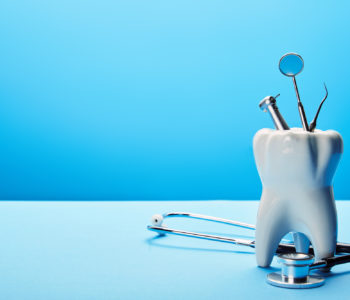 Dental Health
Dental Health
Happy Teeth, Happy Heart
With less than two weeks to go until Valentine’s Day, now is the perfect time to talk about your heart. Don’t worry. This isn’t the Delilah radio hour. We won’t be discussing romance, what makes your heart sing, or whether he or she checked yes or no. This is not about plucking petals off daisies or picking out promise rings. This bit of juicy gossip involves your teeth. There is a proven connection between oral health and a healthy heart. Understanding how the two are related and what you can do to keep both happy is a great way to kick off Hallmark’s month of romance.
The Pulse on Periodontal Disease
Although it might sound alarming, and it is, nearly 50% of people over the age of 30 suffer from periodontal disease, according to the CDC (Centers for Disease Control). In other words, if you were to hand out Valentines to ten friends, you could safely bet that half of them have gum disease. And it gets worse. If your friends are more…seasoned, shall we say, as in over the age of 65, that percentage jumps to 70. For those of you visual learners out there, just take a peek at this graph:

Of those afflicted, any with moderate to advanced periodontal disease are at increased risk for cardiac disease. The good news is, regular dental care and routine scheduled cleanings can signal issues early on, not just for heart disease, but a variety of systemic illnesses and ailments. So, what’s the story? What’s the toxic relationship between lackluster oral hygiene and an ailing heart?
Two’s Company, But Three’s a Crowd
You know the saying, “two’s company, three’s a crowd?” When it comes to your teeth and the health of your heart, the two are faced with a third wheel. Bacteria! Left unchecked or untreated, as the case may be, bacteria in your mouth can travel through your bloodstream. Once they’ve arrived at your heart, it is very easy for them to set up camp, so to speak, by attaching to any existing areas of damage. Settled snug in their hearty new homes – like that live-in boyfriend who suddenly becomes way too comfortable – these bacteria inflame the cardiac tissue, causing additional damage. Cardiac inflammation often results in ailments like endocarditis – an infection of the heart’s interior lining.
Unfortunately, the bacteria don’t rest at endocarditis. In fact, a build up of bacteria has been blamed for clogged arteries and atherosclerosis, which refers to plaque buildup in your arteries. See the connection? Just as bacteria builds to plaque along your teeth and gumline, it does the same inside the critical vessels and pathways to and from your heart. And the fun doesn’t stop there. The AHA (American Heart Association) even cites stroke as a possible risk associated with built up bacteria in the mouth.
Should You Be Worried?
Speaking of risk, who should be concerned about this? Of course, everyone should be concerned when it comes to their own health, but some need to pay immediate attention. If, for example, your dentist has diagnosed you with periodontal disease or gingivitis, you’ll want to take proper measures to combat those conditions. But, even if you haven’t been diagnosed with any stage of either condition, poor dental health habits also put you at risk. That plaque build-up mentioned earlier, (which can only be removed by a dental professional), increases your likelihood of developing gum disease, which, as we’ve seen, could result in heart disease.
The bacteria, which cause gum disease, increase the C-reactive protein in your blood, signaling inflammation within the vessels. Just like Valentine’s conversation hearts, here are a few messages from your gums, which, according to the AAP – American Academy of Periodontology, spell gum disease.
Without further ado…please consult the list and get ready to check yes or no.
You Might Have Gum Disease, if…
<3 Your gums feel swollen, look red, and are sensitive.
<3 If and when (obviously, not often enough!) you do floss, your gums bleed. Ditto when you brush your teeth…or eat.
<3 A glance at your gums reveals signs that they are “pulling away” from your teeth. (This is what we in the industry like to call a relationship red flag. But can you blame them?)
<3 While some people claim to have “Danger” as their middle name, your middle name could be “Halitosis.” In other words, people can smell your words before you even speak them. Bad breath does not bode well for a blissful Valentine’s Day.
<3 Certain teeth are wiggly or loose. This is only cute in childhood. If your teeth are actively trying to escape their neighbors, rest assured, there’s trouble in paradise.
Depending on how many of these bulleted hearts you checked, you might be experiencing dizziness, weak knees, and a general urge to hurl. While these symptoms are often attributed to Cupid’s arrow, in this case, you’re probably having a panic attack. Sure, you’ve flunked regular flossing, but who would have thought doing so could possibly call time out on your ticker?
Take a deep breath…there is a muscle-bound white knight atop a brave steed in this story.
The Rescue Mission
Okay, forget the dippy damsel in distress scenario. The only person who can save the day and salvage this situation is YOU. Start by contacting your trusted team at Crown Dental and get this rescue mission off the ground. After all, time’s a-tickin’. Schedule an appointment as soon as possible. During your appointment, you should expect a thorough examination in order to determine the health of your teeth and gums.
Let’s say you’ve noticed that flossing or even brushing causes your gums to bleed. It’s safe to say, you’re in the early stages of gingivitis. The goods new is that the National Institute of Dental and Craniofacial Research (NIDCR) has determined that this condition, an infection really, can be treated and reversed. All it takes is a firm commitment (we know that word scares many of you), to regular brushing and flossing. In order to get off to the best possible start, schedule your next professional teeth cleaning with Nancy, and schedule follow-ups every six months.
If, however, you know that something’s up, and your oral health is not worth bragging about, allow Dr. Chen to investigate further and assess how far your gum disease has progressed. From there, she will suggest the best course of action. If it has moved beyond gingivitis and has blossomed into periodontal disease, there are a few options to explore…
The first is the least invasive. Known as scaling and root planing (SRP), Nancy will scrape any tartar buildup away from your teeth and root surfaces, then smooth any rough spots so that bacteria cannot reattach and wreak havoc again. This gives your gums a chance to reconnect to clean teeth. Kinda like reconnecting with an ex – only this reconnection is healthy and will actually stick. Provided, of course, you nurture the SRP efforts by taking better than ever care of your teeth and gums. This is the only treatment that is considered non-surgical.
Other options include more invasive procedures, like pocket reduction, also known as flap surgery, in which your dentist will remove any infected tissue under the gum and smooth away damaged bone surfaces, so that, like SRP, the gum can reattach to a cleaner, healthier surface. From there, additional treatments involve grafting of gum tissue or bone. As you might suspect, these missions are far more involved than those designed to combat gingivitis.
At the end of the day, it’s important to understand that good dental hygiene means more than radiant smiles and unoffensive breath. By taking the best care of your teeth and gums, you’re giving your heart a healthy boost. Call Karen at Crown Dental, 603-521-7739, to set up your next appointment.
Make the healthy relationship between your teeth and heart happy and long-lasting!









